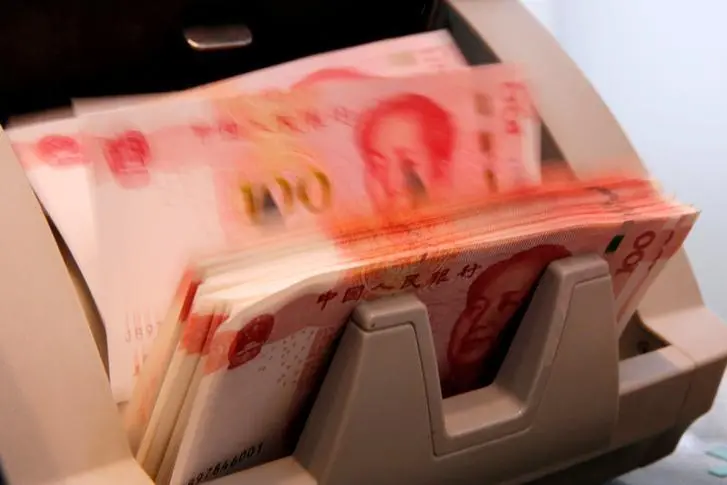PHOTO
Most Asian currencies were on the back foot on Wednesday as a surge in Chinese COVID cases led investors to shun risker assets on concerns the spreading infections in the world's second-biggest economy will hamper regional economic growth.
The Philippines peso and the Indonesian rupiah were leading the laggards for the day, losing about 0.4% and 0.3%, respectively.
A continued surge in COVID-19 cases in China spurred a risk-averse sentiment, undermining the optimism from the previous day, when Beijing announced a loosening of travel restrictions.
Beijing said it would stop requiring inbound travellers to go into quarantine starting from Jan. 8, in addition to downgrading regulations for COVID-19 management.
However, the short-term worry is rising cases will delay a full resumption of Chinese economic activity.
"The tricky part is that even though the Chinese government is working hard to open the domestic economy with an easing of Covid measures or even eliminating most of them, the timing is not perfect," analysts from ING said.
They predicted that both the United States and Europe could fall into recession in the first half of 2023, which would result in a fall of external demand and a slowdown in manufacturing, thereby derailing the recovery of the Chinese economy.
The Chinese yuan saw its worst day in a week, dropping about 0.2%, while stocks were flat.
Other Asian units such as the Malaysian ringgit, Thai baht, and the Taiwan dollar fell in a range of between 0.1% and 0.2%.
Furthermore, a spike in the benchmark U.S. treasury yield overnight sparked a boost in the greenback, even as investors looked for further cues from the country's central bank regarding the tightening of policy rates going forward.
At 0355 GMT, the dollar index, which measures the strength of the U.S. unit against six major currencies, was at 104.35.
Investors will now look forward to the Federal Reserve's meeting minutes for December next week to gauge the trajectory of its rate hiking path going forward.
Several Fed officials from the past have indicated that even though inflation may have peaked, there is still a lot to do to bring down price pressures and to stimulate economic growth.
Among Asian equities, South Korean stocks led the laggards, falling more than 2%, while others such as Taiwan , Philippines and Indonesia traded lower between 0.1% and 1.3%.
HIGHLIGHTS:
** Indonesian 10-year benchmark yields fall to 6.856%
** Hong Kong November home prices ease to more than 5-yr low
** Singaporeans hit the malls on smart shopping spree before sales tax hike
(Reporting by Archishma Iyer in Bengaluru; Editing by Christian Schmollinger)





















